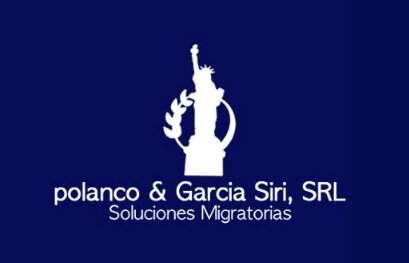Best Collaborative Law Lawyers in Santiago de los Caballeros
Share your needs with us, get contacted by law firms.
Free. Takes 2 min.
Free Guide to Hiring a Family Lawyer
List of the best lawyers in Santiago de los Caballeros, Dominican Republic
About Collaborative Law in Santiago de los Caballeros, Dominican Republic
Collaborative Law is an alternative dispute resolution method that allows involved parties to resolve legal issues, especially related to family law, without the need for litigation. In Santiago de los Caballeros, Dominican Republic, Collaborative Law is gaining recognition as an effective, respectful, and private approach to resolving disputes. Instead of relying on the court to decide the outcome, parties work together with the guidance of trained legal professionals to reach mutually beneficial agreements. This process emphasizes transparency, cooperation, and problem solving, with the goal of preserving relationships and minimizing conflict.
Why You May Need a Lawyer
There are a variety of situations where the assistance of a Collaborative Law lawyer in Santiago de los Caballeros can be beneficial. Common scenarios include:
- Marital separation or divorce, especially when children are involved
- Disagreements over child custody, visitation, or support
- Distribution of marital assets and debts
- Negotiating spousal support or alimony arrangements
- Family business disputes
- Developing or modifying parenting plans
- Inheritance or estate disagreements among family members
- Addressing concerns in a respectful manner to avoid the adversarial nature of court proceedings
Collaborative lawyers can help protect your interests, facilitate constructive discussions, and draft legally binding agreements in accordance with Dominican Republic law.
Local Laws Overview
While the Dominican legal system is based on civil law, it recognizes and supports alternative dispute resolution mechanisms like Collaborative Law, especially in the context of family and civil disputes. Local courts in Santiago de los Caballeros may encourage parties to pursue out-of-court settlements whenever possible. Key aspects to consider include:
- Family law is primarily governed by the Dominican Civil Code and relevant statutes concerning marriage, divorce, guardianship, and child welfare
- Collaborative Law agreements must respect the principles of good faith and cannot violate public order or the rights of minor children
- For agreements to be enforceable, they should be formalized in written contracts and, in some cases, ratified by a judge or notary
- Court involvement is required only when agreement cannot be reached or when the protection of vulnerable parties, such as children, is necessary
- Both parties are required to disclose all relevant financial and personal information to ensure a fair process
It is highly recommended to consult with legal professionals experienced in Collaborative Law to make sure your agreements comply with local regulations.
Frequently Asked Questions
What is Collaborative Law and how is it different from traditional litigation?
Collaborative Law is a method of resolving disputes without going to court, focusing on cooperation and problem solving. Unlike traditional litigation, where a judge decides the outcome, Collaborative Law involves both parties and their lawyers working together to reach a settlement.
Is Collaborative Law legally recognized in Santiago de los Caballeros?
Yes, while not governed by a specific statute, Collaborative Law is accepted as a valid dispute resolution method in the Dominican Republic, provided the resulting agreement complies with civil and family law requirements.
What types of disputes can Collaborative Law address?
Collaborative Law is commonly used in family law matters such as divorce, child custody, asset division, and spousal support, but can also be applied to other civil disputes like inheritance or business matters among family members.
Do both parties need to agree to use Collaborative Law?
Yes, Collaborative Law is a voluntary process. Both parties must commit to working collaboratively and honestly towards a resolution.
Can Collaborative Law agreements be enforced by the courts?
Yes, agreements reached through Collaborative Law can be made legally binding, especially if formalized in writing and, when necessary, ratified by a judge or notary.
What happens if the parties cannot reach an agreement?
If an agreement cannot be reached, the Collaborative Law process ends, and the parties may choose to proceed to court. In most cases, the lawyers involved in the collaborative process must withdraw before traditional litigation begins.
Are children’s interests protected in Collaborative Law?
Yes, the process is designed to prioritize the best interests of children, and Dominican law further ensures that any agreements involving children are scrutinized for fairness and legality.
How long does the Collaborative Law process typically take?
The duration varies depending on the complexity of issues and willingness of parties to cooperate, but it is often faster than court litigation.
How much does Collaborative Law cost compared to going to court?
Collaborative Law can be more cost effective than traditional litigation, as it usually involves fewer court fees and can be resolved more quickly, though costs will depend on the complexity of the case and the professionals involved.
Do I still need a lawyer if I choose Collaborative Law?
Yes, each party should have their own lawyer trained in Collaborative Law to ensure their rights are protected, negotiations are balanced, and agreements are fully compliant with Dominican law.
Additional Resources
For further assistance and information on Collaborative Law in Santiago de los Caballeros, consider reaching out to:
- The local Colegio de Abogados (Bar Association)
- The local family court for guidance on legal procedures
- Professional mediation and conflict resolution centers in Santiago de los Caballeros
- Non-governmental organizations supporting family welfare and legal education
- Consulting with registered attorneys who specialize in Collaborative Law and family law practices
Next Steps
If you believe Collaborative Law may be the right option for your situation in Santiago de los Caballeros, here is how you can proceed:
- Identify your specific legal needs and goals
- Seek out legal professionals who have experience in Collaborative Law
- Arrange for an initial consultation to discuss your options and determine if Collaborative Law is suitable for your case
- Prepare necessary documentation and financial records for full transparency
- Commit to honest and open communication throughout the process
- Follow your lawyer’s advice to ensure agreements comply with Dominican laws and can be legally enforced
By taking these steps, you can approach legal disputes constructively, cost effectively, and respectfully, making the best possible decisions for all parties involved.
Lawzana helps you find the best lawyers and law firms in Santiago de los Caballeros through a curated and pre-screened list of qualified legal professionals. Our platform offers rankings and detailed profiles of attorneys and law firms, allowing you to compare based on practice areas, including Collaborative Law, experience, and client feedback.
Each profile includes a description of the firm's areas of practice, client reviews, team members and partners, year of establishment, spoken languages, office locations, contact information, social media presence, and any published articles or resources. Most firms on our platform speak English and are experienced in both local and international legal matters.
Get a quote from top-rated law firms in Santiago de los Caballeros, Dominican Republic — quickly, securely, and without unnecessary hassle.
Disclaimer:
The information provided on this page is for general informational purposes only and does not constitute legal advice. While we strive to ensure the accuracy and relevance of the content, legal information may change over time, and interpretations of the law can vary. You should always consult with a qualified legal professional for advice specific to your situation.
We disclaim all liability for actions taken or not taken based on the content of this page. If you believe any information is incorrect or outdated, please contact us, and we will review and update it where appropriate.















